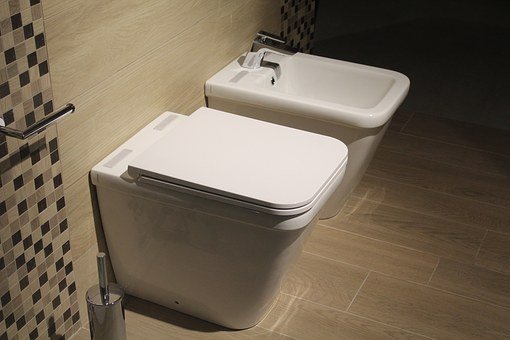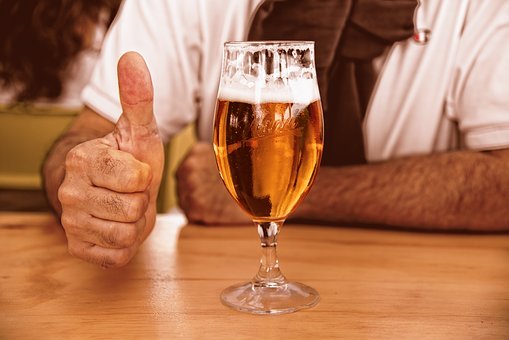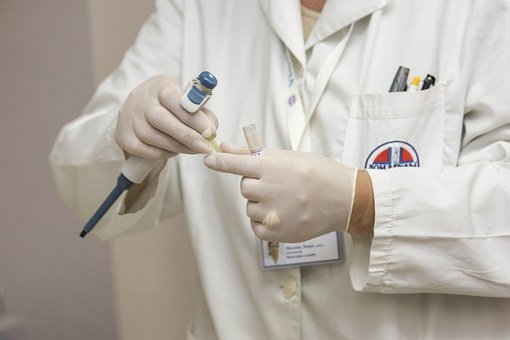Frequent Urination
Date:2020-01-15 click:0

Frequent urination refers to the phenomenon that you need to go to the bathroom more than usual. Normally, the bladder is able to store urine until it is convenient to go to the bathroom, typically four to eight times a day. However, if you need to urinate more than eight times a day or you constantly wake up at night to go to the bathroom, it could mean you are drinking too much or it could be a sign of health problem.
You may also have other urinary symptoms if you are suffering from frequent urination:
An persist urge to urinate
Burning pain when urination
Blood in urine
Difficulty urinating
1. What are the common causes of frequent urination?
1.1 Urinary tract infection
The inflammation in urinary tract is the most common cause that leads to frequent urination. It’s more common in women than in men.
The inflammation in urinary tract is the most common cause that leads to frequent urination. It’s more common in women than in men.
1.2 Prostate problems
An enlarged prostate can press against the urethra and block the urine flow, causing frequent urination. And prostatitis can also cause urinary symptoms including frequent urination.
An enlarged prostate can press against the urethra and block the urine flow, causing frequent urination. And prostatitis can also cause urinary symptoms including frequent urination.
1.3 Diabetes
Diabetes can damage the nerves that control the bladder, causing frequent urination and difficulty controlling your bladder.
1.4 Diuretic use
Medications that have diuretic properties can cause frequent urination, such as medicines that used to treat high blood pressure or fluid buildup work in the kidney and flush excess fluid from the body.
Medications that have diuretic properties can cause frequent urination, such as medicines that used to treat high blood pressure or fluid buildup work in the kidney and flush excess fluid from the body.
1.5 Interstitial cystitis
This condition causes pain in bladder and pelvis, often leading to frequent urination.
This condition causes pain in bladder and pelvis, often leading to frequent urination.

2. What are the risk factors of frequent urination?
There are several factors can put you in high risk of frequent urination, these include:
2.1 A large amount fluids consumption, especially alcohol or caffeinated beverages.
2.2 Infection in bladder.
2.3 Injury in the bladder.
2.4 Changes in the muscles, nerves, or other tissues that are involved with bladder function, such as your kidneys.
2.5 Being excessively anxious.
3. What tests should I do if I have frequent urination?
If frequent urination affects your lifestyle or is accompanied with other symptoms such as fever, chills, vomiting, nausea, pain when urinating, blood in urine, it’s important for you to go to see a doctor.
To diagnose the cause of frequent urination, your doctor will perform a physical exam and ask you some questions as the following:
3.1 When did your symptoms begin?
3.2 Are you drinking more than usual?
3.3 Are you experiencing other symptoms?
3.4 Is your urine normal as usual?
3.5 Are you taking any medications?
After having the physical exam, your doctor will also perform other tests, including:

Urine test
Your doctor will take a sample of your urine and look for infection, blood, and other abnormal substances like sugar or protein.
Your doctor will take a sample of your urine and look for infection, blood, and other abnormal substances like sugar or protein.
Cystoscopy
Your doctor will use a lighted instrument to take a closer look inside the bladder to find the lesions in bladder and urethra.
Your doctor will use a lighted instrument to take a closer look inside the bladder to find the lesions in bladder and urethra.
Bladder scan
This is an ultrasound done on your bladder after you have urinated to see how much urine is left behind.
This is an ultrasound done on your bladder after you have urinated to see how much urine is left behind.
Neurological test
This helps the doctor confirm or rule out the presence of a nerve disorder.
This helps the doctor confirm or rule out the presence of a nerve disorder.
4. What treatment should I take if I have frequent urination?
The treatment for frequent urination depends on its causes. For example, if it is caused by diabetes, treatment will involve keeping blood sugar levels under control. However, if it’s caused by urinary/reproductive system diseases like prostatitis and UTI, the treatments will include medications and behavioral therapies:
4.1 Antibiotics
This is the most common treatment for infections that caused by bacteria. The strong antibacterial function can kill the causative bacteria effectively. You should continue taking the entire course of antibiotics that prescribed by your doctor even if the symptoms disappeared to make sure the infection is cured completely. If the infection develops chronic, your doctor will prescribe with long-term antibiotics.
This is the most common treatment for infections that caused by bacteria. The strong antibacterial function can kill the causative bacteria effectively. You should continue taking the entire course of antibiotics that prescribed by your doctor even if the symptoms disappeared to make sure the infection is cured completely. If the infection develops chronic, your doctor will prescribe with long-term antibiotics.
4.2 Pain medication
Your doctor may also prescribe pain medication to relieve the pain and burning when urinating. Normally, the pain will be alleviated soon after starting taking antibiotics.
Your doctor may also prescribe pain medication to relieve the pain and burning when urinating. Normally, the pain will be alleviated soon after starting taking antibiotics.
4.3 Diet modification
Diet plays a very important role in the treatment of infection or inflammation in urinary/reproductive system. You should avoid any food that will irritate your bladder, such as spicy foods, alcohol, caffeinated beverages, smoking, carbonated drinks, chocolate, and artificial sweeteners. It’s also important to eat high-fiber foods, because constipation may worsen the symptoms.
Diet plays a very important role in the treatment of infection or inflammation in urinary/reproductive system. You should avoid any food that will irritate your bladder, such as spicy foods, alcohol, caffeinated beverages, smoking, carbonated drinks, chocolate, and artificial sweeteners. It’s also important to eat high-fiber foods, because constipation may worsen the symptoms.
4.4 Monitoring fluid intake
You should drink enough fluids to prevent constipation and over-concentration of urine, but you should avoid drinking just before bedtime, which can aggravate the frequent urination at night.
You should drink enough fluids to prevent constipation and over-concentration of urine, but you should avoid drinking just before bedtime, which can aggravate the frequent urination at night.

Natural herbal treatment for frequent urination
Except for conventional western medicine and behavioral therapies, natural herbal treatment can also used to treat frequent urination that caused by urinary/reproductive system diseases like prostatitis, UTI and interstitial cystitis.
Herbs have been used for thousands of years in China. The ingredients of herbal medicine are all from nature with their special and helpful properties in treating diseases in human. Chinese herbalist Lee Xiaoping is professional and skillful in treating male and female urogenital system disease., and she has more than 30 years of clinical experience. She used more than 50 types of natural herbs and made them into pills. Before extracting these herbs, she has tested their properties thoroughly. The reasonable and scientific combination makes the pill a full-featured treatment.
In the theory of Traditional Chinese Medicine, the inflammation is caused by the blood and Qi blockage and the damp heat in the lower body. This herbal pill contains herbs that have multiple functions, such as clearing away heat and toxins to kill the bacteria, improving the blood and Qi flow to relieve the pain, dissolving the blood stasis and dispelling damp heat. After 3 to 6 months’ treatment, the inflammation or infection can be removed fully.
On the concept of TCM, diet is an vital part during the treatment. It’s one of the factors that decides the therapeutic effect. Therefore, you should avoid foods that may irritate the infected regions. These foods are the same as the “diet modification” mentioned above.
By combining proper diet with natural herbal treatment, the inflammation can be cured completely with low relapse. It provides a safe treatment with high cure rate.
You may also be interested in:
Medication For Frequent Urination
You may also be interested in:
Medication For Frequent Urination



